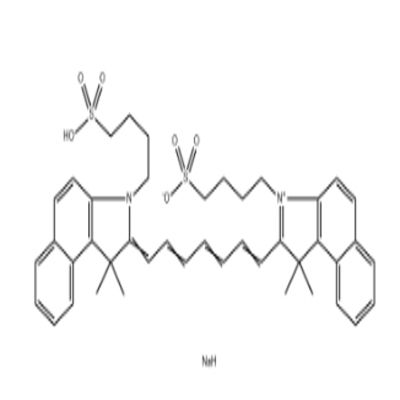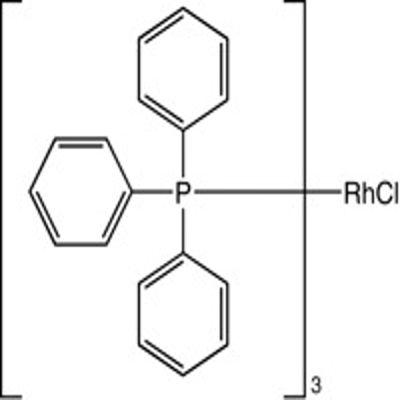-
Categories
-
Pharmaceutical Intermediates
-
Active Pharmaceutical Ingredients
-
Food Additives
- Industrial Coatings
- Agrochemicals
- Dyes and Pigments
- Surfactant
- Flavors and Fragrances
- Chemical Reagents
- Catalyst and Auxiliary
- Natural Products
- Inorganic Chemistry
-
Organic Chemistry
-
Biochemical Engineering
- Analytical Chemistry
- Cosmetic Ingredient
-
Pharmaceutical Intermediates
Promotion
ECHEMI Mall
Wholesale
Weekly Price
Exhibition
News
-
Trade Service
Autumn and winter season, for patients with allergic rhinitis, is the beginning of another year of "tears", nasal congestion, runny nose, sneezing constantly, love tears of you, do not need to say more, exchange paper towels, perhaps the most unspoken greetings.
it is well known that allergic rhinitis often causes damage to the quality of daily life and inconvenience to life, but in fact, its negative effects are much more than that.
a study published in July 2020 in Pediatric Allergy Immunology looked at the damage to cognitive function in allergy children during pollen season and tried to link the extent of the damage to quality of life and biomarkers associated with stress and inflammation.
Cognitive dysfunction and quality of life when pollen season in children with seasonal allergic rhinitisDOI: 10.1111/pai.13328 study included 43 children (8-17 years old) with allergic rheumatitis who did not have satisfactory drug treatment in previous seasons (antihistamines and nasal steroids were treated daily).
also included 26 matching non-allergic children as a control.
study found that cognitive impairment in spatial working memory resulted in more errors in the allergy group than in the non-allergic group, but there was no difference between the two groups during the non-pollen season.
other tests for visual memory or attention, the researchers found no significant differences between the allergy group and the control group.
health quality questionnaire showed more symptoms in the allergy group and impaired quality of life.
pollen season, more symptoms in the allergy group were associated with longer reaction times for simple exercise.
, no differences were found between the two groups of stress or inflammatory markers.
researchers note that children with pollen allergies are affected by cognitive function during pollen season, and the more symptoms there are, the longer the cognitive test response takes.
Pollen season and non-pollen season control group and allergy group of children's cognitive test results allergic rhinitis (AR) is contact with allergens (such as dust mites, pollen, animal fur, etc.) after the appearance of non-infectious chronic inflammation of the nasal mucosa, manifested as sneezing, watery nose, nose itch, nasal congestion, etc. , but also appear olfactory loss, itching, lime congestion and other manifestations.
AR is a global health problem, and according to the Guidelines for the Diagnosis and Treatment of Allergic Rhinitis of the Chinese Allergy Society, published in 2018, epidemiological studies show that the incidence of AR has increased in countries around the world over the past few decades and now affects up to 40% of the world's population.
a six-year self-reported AR survey of china's average adult population, the standardized prevalence of AR among Chinese adults rose from 11.1 percent in 2005 to 17.6 percent in 2011.
Chinese Society of Allergy Guidelines for Diagnosis and Treatment of Allergic Rhinitis and 2011 adult AR prevalence in major Chinese cities is an important and serious public health problem, not only because of its high incidence, but also because of its high incidence, which can lead to complications such as asthma, allergic conjunctivitis, chronic sinusitis, upper gas cough syndrome, otitis midsexualitis, and because it adversely affects the quality of life (QOL), including work efficiency, social life, and mental and psychological conditions.
studies have shown that nasal symptoms are significantly associated with anxiety, mood and behavioural problems.
a study of AR patient QOL showed that patient health declined in all areas, particularly in general health cognition, body role function, and emotional role function.
, although there were no significant differences in personality traits, patients had a tendency to develop anxiety.
Analysis on quality of life and personality of the study of prospective cohorts for moderate/severe AR patients showed that 86.9 percent of patients had sleep, 84.9 percent had working lives, 81 percent had social activity, and 90.1 percent had impaired physical activity.
Prevalence of uncontrolled allergic rhinitis in Wuhan, China: a prospective cohort studyDOI: 10.2500/ajra.2014.28.4079 According to the situation of Chinese patients and the international common classification method, ar classification mainly has three classification methods: (1) by allergen type a) seasonal AR: symptoms occur seasonally.
air allergens (pollen and fungi) are the most common allergens.
b) Perennia AR: Symptoms occur throughout the year.
allergens include dust mites, animal dander, tree pollen, etc.
(2) intermittent AR:-lt;4 days/weeks or 4 weeks/year by frequency of symptoms a).
b) Continuous AR: ≥4 days/week, ≥4 weeks/year.
(3) mild AR by severity of symptoms a): Symptoms do not affect the quality of life of the patient, including daily life, work, study, etc.
b) Moderate-severe AR: Symptoms cause serious distress to the quality of life of the patient.
main cause of AR is inhalation allergens, including outdoor and indoor air allergens.
allergens mainly include pollen and fungi, which are positively related to the development of seasonal/intermittent AR.
and indoor allergens, which typically include aphids, animal dander, cockroaches and fungi, are the main causes of perennial/persistent AR.
recently, researchers assessed the relationship between environmental air pollution, family environment and asthma and rhinitis across China.
Asthma and allergic rhinitis among young parents in China in relation to outdoor air pollution, climate and home environment. DOI: 10.1016/j.scitotenv.2020.141734 Studies have shown that urbanization, NO2 and traffic exhaust can increase the risk of asthma and allergic rhinitis (AR) in adults.
exposure to allergens from animals or pests (cats, dogs, cockroaches, mice/rats) increases the risk of asthma or allergic rhinitis.
sources of chemicals in the room, such as redecorating and new furniture, are also risk factors.
air humidifiers and air purifiers used in the home increase the incidence of asthma and allergic rhinitis.
indoor combustion sources, including cooking with a gas stove or by burning biomass, burning mosquito-scented coils and incense, may be associated with asthma or allergic rhinitis.
often cleaning, will be exposed to the sun, can play a protective role.
The relationship between family environmental factors and asthma and allergic rhinitis through the multi-layered logic regression model OR (95%CI) (n-40279) If someone around you has symptoms such as nasal congestion, runny nose, etc., it is often mistaken for a cold, but perhaps he is also AR, how to distinguish between a cold and AR? Cold has a certain infectious, there are nasal congestion, sneezing, water snot and other symptoms and allergic rhinitis is very similar, but the former usually have fever, sore throat, cough, etc. , generally about a week to improve.
AR symptoms are often repeated and last for a long time, sometimes lasting weeks, months, or even year-on-year, with a large number of snots, continuous sneezes, itchy noses, and symptoms of itchy eyes and loss of smell.
is becoming more pronounced during hot and cold alternating heat and severe air pollution, and is significantly related to exposure to allergies.
Although there is no cure for AR, but in daily life as long as the following points can still be well controlled: 1. Avoid contact with allergens to avoid contact with various allergens indoor and outdoor, to carefully observe and record the daily diet and contact with items, and so on, to find possible allergens, and thus avoid.
Daily must maintain air circulation, indoor cleaning, avoid contact with carpets and plush toys, regular cleaning of air conditioning filters, frequent sun exposure, timely replacement of pillow towels, change season, wardrobe clothes first dry before wearing.
2. Note that many patients are sensitive to temperature changes, the weather turns cold, every day after getting up, you can use a hot towel to apply a nose, or drink a cup of hot boiled water, to keep the nose warm.
outdoors, you can wear a mask to keep your mouth and nose warm.
3. Flushing the nasal cavity is recommended to rinse the nasal cavity once a day morning and evening, which can effectively reduce the content of allergens in the nasal cavity.
major hospitals or regular pharmacies have a special nasal wash, according to the instructions required to use it.
. In conjunction with drug use, there is no cure for AR, but it can be effectively controlled by drugs.
The most clinical use is nasal glucosticoids, anti-congestive agents, antihistamine drugs, etc. 5. Improving immune rhinitis is often the result of decreased resistance, strengthening exercise, healthy diet, not staying up late can ensure daily strong immunity.
this article is from Bio Valley, for more information please download Bio Valley APP (







